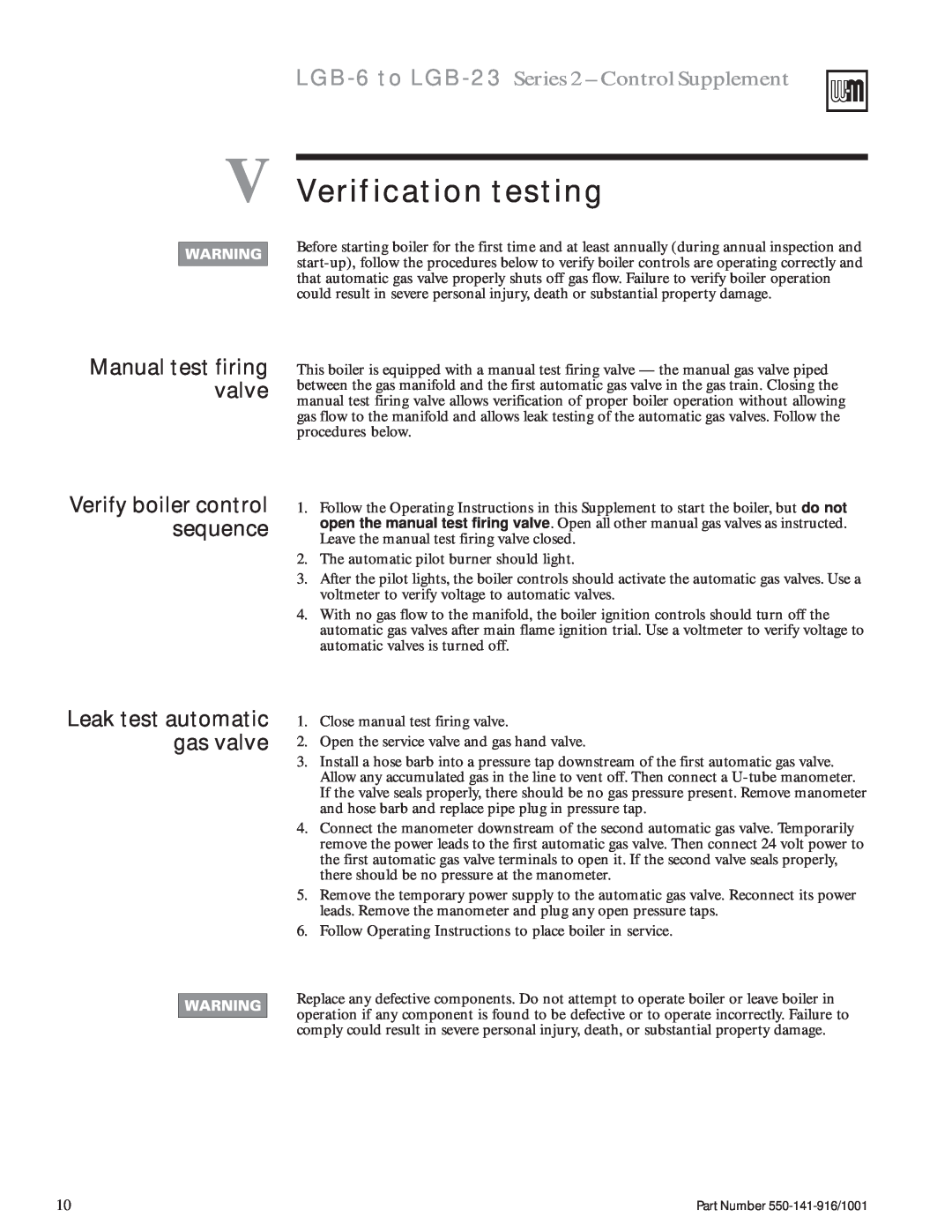
V Verification testing
Manual test firing valve
Verify boiler control sequence
Leak test automatic gas valve
Before starting boiler for the first time and at least annually (during annual inspection and
This boiler is equipped with a manual test firing valve — the manual gas valve piped between the gas manifold and the first automatic gas valve in the gas train. Closing the manual test firing valve allows verification of proper boiler operation without allowing gas flow to the manifold and allows leak testing of the automatic gas valves. Follow the procedures below.
1.Follow the Operating Instructions in this Supplement to start the boiler, but do not open the manual test firing valve. Open all other manual gas valves as instructed. Leave the manual test firing valve closed.
2.The automatic pilot burner should light.
3.After the pilot lights, the boiler controls should activate the automatic gas valves. Use a voltmeter to verify voltage to automatic valves.
4.With no gas flow to the manifold, the boiler ignition controls should turn off the automatic gas valves after main flame ignition trial. Use a voltmeter to verify voltage to automatic valves is turned off.
1.Close manual test firing valve.
2.Open the service valve and gas hand valve.
3.Install a hose barb into a pressure tap downstream of the first automatic gas valve. Allow any accumulated gas in the line to vent off. Then connect a
4.Connect the manometer downstream of the second automatic gas valve. Temporarily remove the power leads to the first automatic gas valve. Then connect 24 volt power to the first automatic gas valve terminals to open it. If the second valve seals properly, there should be no pressure at the manometer.
5.Remove the temporary power supply to the automatic gas valve. Reconnect its power leads. Remove the manometer and plug any open pressure taps.
6.Follow Operating Instructions to place boiler in service.
Replace any defective components. Do not attempt to operate boiler or leave boiler in operation if any component is found to be defective or to operate incorrectly. Failure to comply could result in severe personal injury, death, or substantial property damage.
10 | Part Number |
